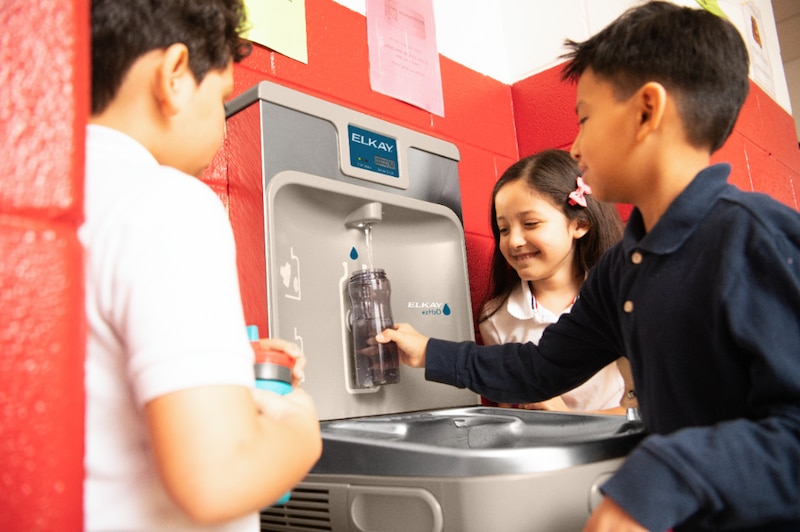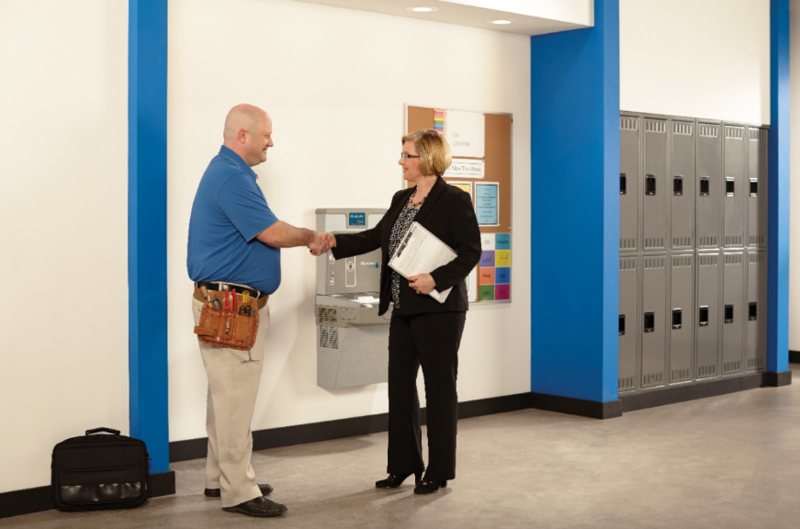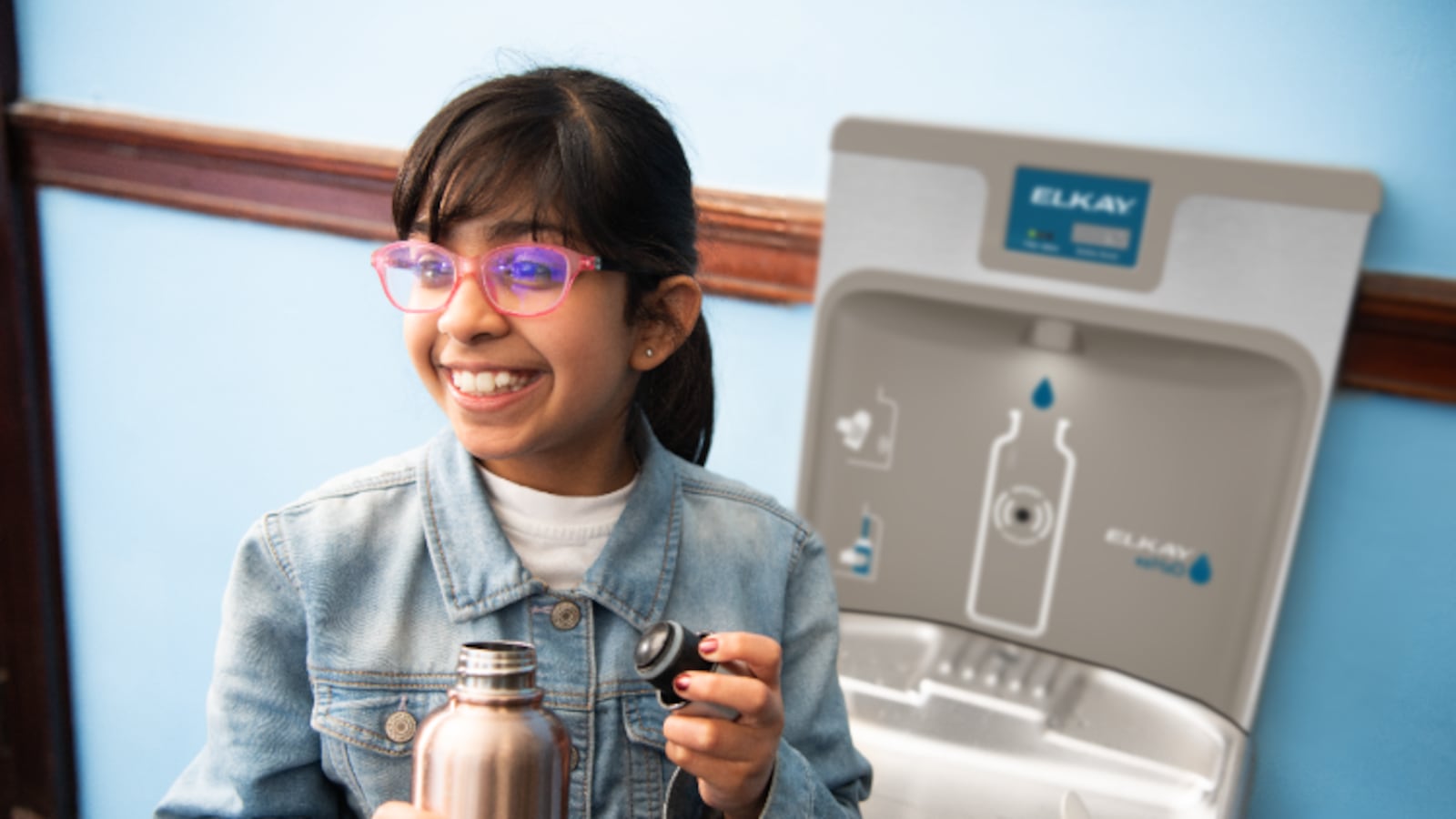Water is essential to children’s and educators’ health. The body works better when it’s hydrated because water is essential for numerous reasons:
- Growth and development
- Regulating body weight
- Improving quality of sleep
- Contributing to healthy digestion
- Enhancing physical activity performance
- Normalizing the body’s normal functions
- Improving cognition and concentration
Not to mention, access to clean water increases overall attendance in schools, therefore improving overall academic performance.
Despite the benefits of healthy, filtered drinking water, many schools across the United States lack access to clean water. Last year, an estimated 13 million American children went to schools where officials found elevated levels of lead (U.S Government Accountability Office). Students and educators across the United States risk exposure to lead, copper, and other toxins in their water (American Water Works Association). On top of that, according to the CDC, one in five children and adolescents do not drink any plain water during the day, and about half of school-aged children are under-hydrated.

The U.S. Environmental Protection Agency estimates that drinking water can make up 20% or more of a person’s total exposure to lead. Lead is particularly dangerous to children because their growing bodies absorb more lead than adults do, and their brains and nervous systems are more sensitive to the damaging effects of lead. Even low levels of lead in the blood of children can result in behavior and learning problems, lower IQ and hyperactivity, slowed growth, hearing problems and anemia (EPA).
Luckily, many areas are implementing new regulations to provide clean, filtered water in schools and their communities across the country, in addition to new grants, like the CARES Act or the LCR, being offered to assist in furthering the access to clean water. However, some of these laws take time to be put into action and often require revisions (EPA).
As more students have returned to school this year, it is more important than ever to not only motivate those in schools to drink more water, but to encourage administrators to provide access to clean water in their facilities.

One of the best ways to encourage access to clean drinking water and hydration is by installing bottle filling stations throughout schools. Elkay Manufacturing’s ezH2O Bottle Filling Stations have NSF-certified filters that reduce lead and other contaminants in water and feature hands-free, sanitary operation.
Not to mention, the units include an exclusive green ticker that tell users the number of 20 ounce plastic water bottles that have been saved from waste, making great teaching moments for kids about health, sustainability, environmentalism, and more.
Elkay believes that children and educators deserve clean water, especially where they’re learning and growing every day. Through Elkay’s Fountains for Youth program, fresh, filtered drinking water is provided through the donation and installation of ezH2O Bottle Filling Stations to allow the teaching of healthy hydration habits for life and encouraging access to healthy water for students and educators alike.
Just last year, Elkay donated 101 bottle filling stations to be installed on Chicago’s South and West sides in the city’s schools, parks, youth centers, and community facilities, to bring access to clean drinking water across locations that need it most while helping reduce single-use plastic waste. Elkay aims to expand these efforts and continue to bring clean, filtered water to communities that need it most.
Learn more about Elkay’s bottle filling stations at elkay.com or visit elkay.com/fountainsforyouth to learn more about Fountains for Youth and how to talk to your local school about installing water bottle filling stations.
Chalkbeat’s editorial staff had no role in writing or preparing this paid content. Learn about our sponsored content policy.


